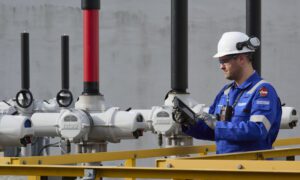As industries seek to optimise their operations and stay ahead in an increasingly competitive market, systems that can improve efficiency and ensure safety are becoming more critical.
Actuators and flow control equipment within chemical plants must be precise, reliable and efficient. Implementing a robust maintenance plan and integrating an intelligent asset management system is central to achieving this operational stability.
Monitoring and maintenance
Proactive maintenance helps reduce downtime and keep sites operating smoothly. Rotork Site Services (RSS) addresses the need to monitor and maintain critical equipment.
Rotork experts work with companies to assess each actuator and the likely consequences if they were to become unavailable. The aim is to understand which would cause the most disruption or cost to process should they not be available when required. For example, a facility with 100 actuators, may only have 10 actuators that would require the highest level of maintenance to prevent severe impacts in case of unavailability. One of Rotork’s customers operating in the Asia Pacific region has a single actuator on a critical valve that would cost $1 million a day in downtime if it were to become unavailable when required to operate.
Minimising downtime with a flexible maintenance programme
Not every actuator would cause a problem if it became unavailable. Tiered maintenance has become common in the industry. These typically are basic, standard and premium levels of cover. Companies can select a premium plan for actuators controlling their most critical processes and other levels for less critical situations.
With a basic package, engineers visit a site to inspect the actuators. For the premium offering, they visit more frequently, remove the terminal covers to inspect the actuators’ internal workings, and change seals, oil, and parts as required.
Asset failure due to inadequate maintenance can result in diminished performance, decreased quality, and productivity, leading to investment loss and significant environmental consequences. To avoid failing or underperforming equipment, sites must ensure their operations run as effectively as possible. If this equipment fails, the consequences can be disastrous.

Enhancing efficiency through data-driven insights
Asset management technology offers several benefits, such as improving safety, reducing environmental damage, and maintenance scheduling, all of which can improve uptime.
This means issues can be promptly addressed before they become serious problems or lead to shutdowns. An unplanned plant shutdown can be costly and may lead to environmental or safety risks.
A significant advantage of intelligent asset management is the integration of diagnostics. A cloud-based system like Rotork’s analyses data logs from intelligent actuators. The data is fed into an algorithm that enables Rotork experts to assess an actuator’s health and make maintenance recommendations, helping to avoid any failure and potential downtime.
It determines the actuator’s condition, predicts upcoming issues, and recommends actions. Diagnostics can include vibration analytics, usage statistics, torque profiles, and health scores, among many other valuable data points.
Valve seating, sealing, and other mechanical issues can be detected only by subtle changes in torque. Additionally, when analysing different parts of the torque curve, issues with the actuator’s drive bush, gearbox, motor, bearing and valve issues can often be detected. The analysis takes several factors into account when detecting warnings or alerts.
As industries move increasingly towards electrification, intelligent asset management is linked to Rotork’s IQ3 Pro range of electric actuators fitted with data loggers.
Conclusion
Intelligent electric actuators can enhance safety, efficiency and environmental performance. At the same time, ongoing maintenance is essential for all equipment. This becomes much more critical when controlling the flow in severe service applications.
Specialist systems can analyse data taken from intelligent actuators to assist with appropriate maintenance actions to ensure optimum performance. Proactive maintenance driven by this data can help reduce unplanned downtime and improve safety and efficiency for end users.
